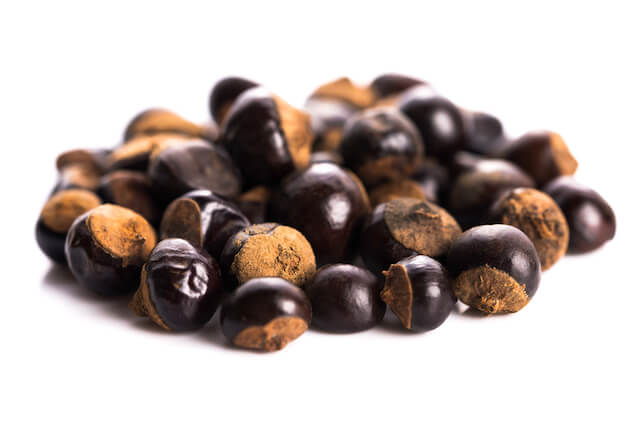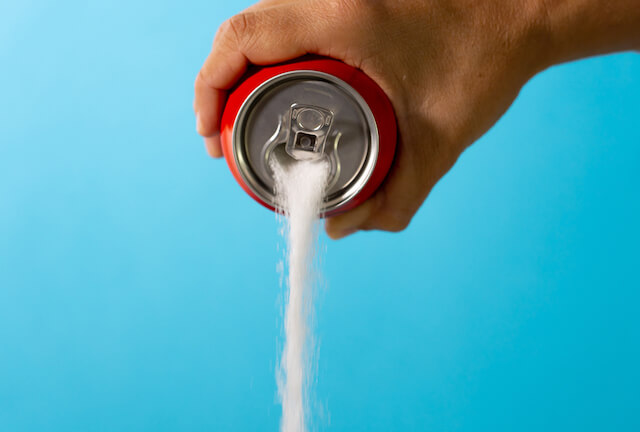Americans consume a whopping 29 billion gallons of energy drink liquid every year. Not surprisingly, teenagers and young adults are responsible for most of this consumption. Instead of proper rest and nutrition, the tendency to grab a quick jolt of energy to keep us going and sustain us throughout the day is all too real. But what is the truth about energy drinks? Are they just high doses of caffeine and sugar that provide our bodies with fuel to get through the day, or is it even worse than that?

Ask any energy drink addict, and they’ll tell you they are willing to accept the risks associated with the high doses of caffeine and sugar in their energy drinks. But what most people do not realize is that there are many other risky ingredients in their beverages. Shockingly, several reports suggest that the combination of certain ingredients is where the real concern lies. Let’s look at some common ingredients in energy drinks.
Ingredient Risks
Most of the ingredients in the following list have some benefits for human health. The problem is that too much of a good thing is not good for the body in most cases. It is important to take into consideration the cumulative effect of multiple ingredients, as well as the effects of repeated usage. Most energy drink users don’t just have one pick-me-up beverage on occasion. The addictive nature of the drinks creates a chemical dependence, causing the energy-deprived users to keep coming back for more.
Checking the labels won’t always help either. With the exception of caffeine, energy drink labels don’t typically specify the proportions of other ingredients. Instead, they are described as an “energy blend” or “proprietary blend” of multiple ingredients.
Caffeine
Caffeine has the ability to boost concentration and memory, as well as enhance physical performance. It also affects the cardiovascular system with positive inotropic and chronotropic effects that stimulate stronger heart contractions. The problem arises when one becomes addicted to or abuses caffeine and when it is combined with other chemicals that further enhance its effects.

After ingestion, the body quickly absorbs caffeine into the circulatory system. It is distributed through body tissues, including the blood-brain barrier. As an ergogenic compound, it increases heart rate and blood pressure. Caffeine metabolism takes place in the liver, and its effects last for anywhere from 2-12 hours, depending on the person’s metabolism and the amount consumed.
While modest doses of caffeine may actually be good for your heart, high doses, like those found in many energy drinks, can lead to palpitations and arrhythmias. Not only that, coupling caffeine with other ingredients often compounds the effects.
Guarana
Guarana is another common ingredient found in energy drinks. The seeds of this plant contain up to four times the amount of caffeine found in coffee beans, along with the stimulants theophylline and theobromine. Both of these compounds have numerous therapeutic benefits in moderate doses, but high doses contribute to cardiac arrhythmia and seizures.

Similarly to caffeine, guarana, theophylline, and theobromine are not dangerous in and of themselves. But when we combine these substances with other stimulants, problems can arise. Energy drinks with a blend of caffeine and guarana pose a risk of being just too much.
B Vitamins
Our bodies need B vitamins for many important metabolic and cellular functions. B vitamins not only combat fatigue and increase alertness, they can actually help improve mood and reduce stress. It’s no wonder energy drink manufacturers are adding hefty doses of B vitamins in their products. Overt overdosages can cause vitamin toxicity affecting various body systems, including the nervous system.
Because B vitamins are water soluble, your body flushes out what it doesn’t use. The body typically excretes an excess of B vitamins in urine. However, some studies suggest that certain B vitamins cause neurological issues and have detrimental effects on the immune system and cardiovascular system, and even increase carcinogenesis at higher concentrations.
Sugar and Other Sweeteners
Many energy drinks contain massive amounts of sugar. The average 8 oz. can of energy drink contains 24-30 grams of sugar. (That’s about 2-3 tablespoons!) While it may provide a quick jolt of energy, this is not without a price. High doses of sugar carry many known health consequences:

- Kidney disease
- Obesity
- Cardiovascular issues
- Cancer
- Metabolic dysfunction
- Tooth decay
- Increased bodily inflammation
- Stimulation of the brain’s hedonic pathway, causing addictive behavior
Even if your energy drink does not contain sugar, it likely has some other artificial sweetener. Common sweeteners, like sucralose, saccharin, and aspartame, carry their own set of health risks.
Ginseng
Many energy drinks contain ginseng for its purported abilities to boost athletic performance, strengthen the immune system and improve mood. However, some studies show that there are numerous side effects of high or repeated dosages of ginseng, including mood disorders, cardiovascular, liver, and renal toxicity, interference with estrogen receptors in women, hypertension, reproductive issues, and various drug interactions.

Alternatives
The good news is that there are healthier alternatives out there. It requires careful research and label reading, but better options are available.
What about you? Do you love energy drinks, or have you found a healthier alternative? Comment below and share your favorite pick-me-up!
Looking for more no-nonsense research-based health and wellness education that is broken down and easily understood? Come check out !


